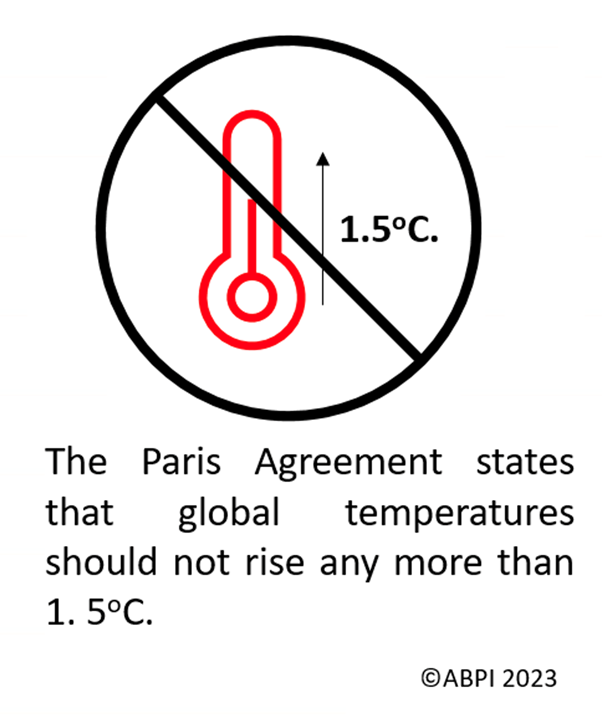This topic takes on average 90 minutes to read.
There are a number of interactive features in this resource:
 Chemistry
Chemistry
 Physics
Physics
 Science
Science
As well as personal carbon footprints, large factories have a carbon footprint too. Their carbon footprints are much bigger than personal carbon footprints, and the climate crises is urging them to do something about this.
Every year, nations convene at the Conference of Parties (COP) to discuss global warming and what steps need to be taken. Climate change is a global challenge, and all countries and companies need to work together to make a big difference.
In 2015, the COP was held in Paris and the Paris Agreement was developed. The Paris agreement is a legally binding treaty on climate change to limit global warming to well below 2oC and preferably 1.5oC. This means that the Earth’s temperature shouldn’t increase by any more than 2oC, and preferably by no more than 1.5oC.
For this target to be met, industries all over the world need to do their bit to limit their carbon footprint.
One of which is the pharmaceutical industry, which are the companies that make medicines.
Medicines are responsible for 25% of the NHS carbon footprint, and companies are doing something about this for a greener future (NHSE, 2022).
They are committed to renewable energy and have net zero targets, and are moving towards solar power and wind energy instead of fossil fuels. Companies are also conscious of their waste generation and water use, and how they can develop new medicines with a lower impact on the planet.
References:
NHSE (2022). Delivering a ‘Net Zero’ National Health Service. Available at: https://www.england.nhs.uk/greenernhs/wp-content/uploads/sites/51/2022/07/B1728-delivering-a-net-zero-nhs-july-2022.pdf (Accessed: 11 October 2023).
